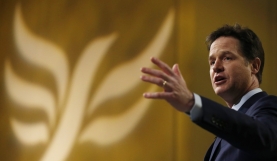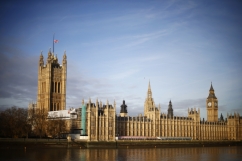It's funny how trends come and go. Growing up, it seemed that few people thought paying your taxes was a great good, except for the most ardent left-winger, as I happened to be at the time.
For most people, paying tax was done grudgingly, and few would condemn those who avoided paying tax if they could.
However times have changed, particularly after the financial crisis of 2007 left big holes in government accounts and exposed some bad behaviour by big corporations. Now many people see paying taxes as a public service. Not paying much tax is likely to bring a boycott upon you, as Starbucks and Amazon have discovered.
This week a leak from a tax haven law firm has revealed the tax evasion and potential money laundering activities of many individuals associated with governments around the world, so the heat is likely to increase.
But is paying tax really a moral good? I'm not so sure.
Yes, taxes contribute to good things like our National Health Service and supporting the old and vulnerable. However having worked in both of those systems, I could not describe everything they do as good. Sometimes government services harm, as well as heal. Paying taxes contributes towards both.
Worse, our taxes are funding government actions such as propping up corrupt regimes abroad, subsidising the arms industry and advocating for other questionable corporations. Most worryingly, our taxes support making war. When a million people marched to protest against invading Iraq, Tony Blair ignored them and went ahead, using our money for a battle that few people now support and has had some devastating consequences.
Our taxes contribute to creating a concentration of power in the State that I believe is rarely a good thing. At least in the private sector, we can choose whether we buy goods from small, ethical, local companies or large multinationals. But we're forced to give our money to the government, and in the process we make it even more powerful.
Don't get me wrong. I'm not saying we should do anything illegal, and I'm also not saying that Christians shouldn't be involved in politics and government. But Christians have often questioned the extent to which we should separate ourselves from it. Anabaptists in particular tend to withdraw from the State as much as possible. In some states in the US, the Amish are exempt from paying some taxes, because they argue that they don't use the services that they'd be paying for – they provide their own education and their own health insurance to their community. They don't support war and they don't want anything to do with it.
I'm not sure this radical step is the answer. But alternatives could be found that encourage community giving while at the same time reduce concentrations of power and empower the public to choose where their money goes. Strangely enough though, few people in power seem keen on letting go of this power, or money.
Of course, this argument could be an excuse to just try and keep more money for ourselves for selfish means, and that's surely not what Jesus wants us to do. Paying less tax should mean having more money to spend on charities and directly on causes we want to support.
It's surely good to give as much as we can – but where the money is actually going should be one of our biggest concerns.


















